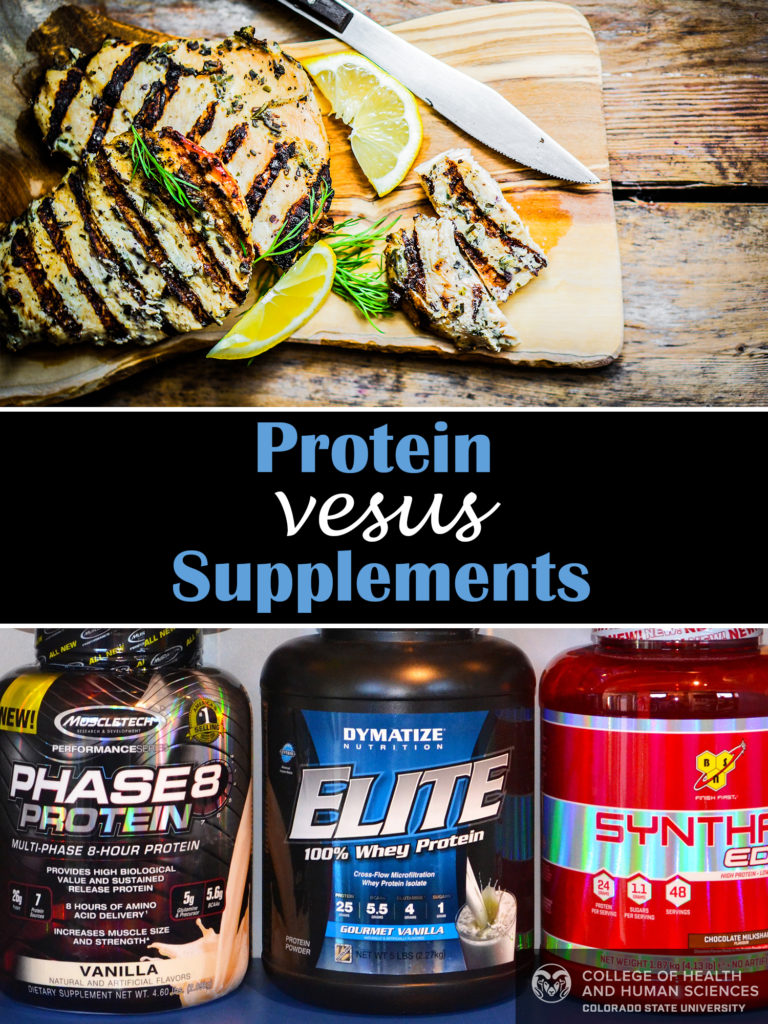Popular opinion would tell you protein is the best way to replenish and repair—that you need a lot of it, right away, and that protein supplements are needed to build and bulk. The more protein you take in, the more muscle you gain, right? Not so fast; metabolism tells another story. While protein is an important building block, it is possible to get too much, timing is important, and not all proteins are equal. Read on to get the facts on safe and optimal protein intake to stay healthy while meeting your fitness goals.
How much protein do I really need?
- There is no one-size-fits-all recommendation for protein. Amounts vary per person based on age, sex, training demands, health conditions, and more. See a registered dietitian nutritionist to learn how much protein you need to support your lifestyle.
- The RDA for protein is 0.8 grams of protein per kilogram (not pound!) of body weight per day (or 46 grams/day for women and 56 grams/day for men). Athletes typically have higher needs that vary depending on training intensity and frequency.
- This standard works well for the average healthy adult, however standards are different for teenagers, pregnant women, and those with increased needs due to health conditions.
- More is not always better. Excess protein can be harmful. Some studies suggest that eating too much protein can cause your body to excrete calcium, leading to bone loss and increased risk for osteopenia or osteoporosis. For those with kidney dysfunction, big doses of protein can be a burden. Also, your body can store excess calories from protein as fat. Excess calories from any macronutrient will be stored as fat.
Protein foods vs. supplements
For most cases, a person can obtain all the protein they need from food, and this is preferred. Food sources of protein are typically less expensive and safer than protein supplements, and they contain other nutrients that your body needs to be healthy. Additionally, supplements, including protein supplements, are not well-regulated by the FDA, meaning their ingredients do not have to be reviewed or inspected before they hit the shelves. Protein supplements might be necessary for those unable to consume enough protein to keep up with training demands. In these cases, protein supplements are designed to SUPPLEMENT a meal and do not serve as a quality meal replacement. Be sure to check labels to ensure the supplement fits within your protein budget without overdosing. More is not always better!
For delicious recipes, nutrition tips, and to find cooking and nutrition classes, go to the Kendall Reagan Nutrition Center website. More great info is also available at the College of Health and Human Sciences Pinterest board.